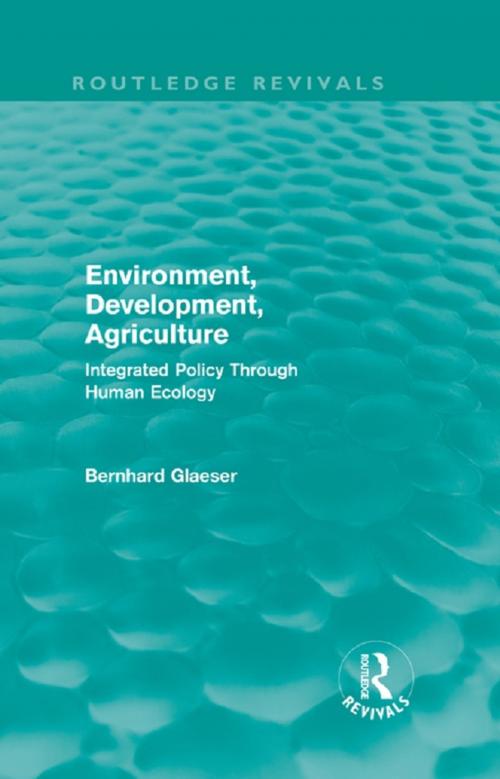Environment, Development, Agriculture
Integrated Policy Through Human Ecology
Business & Finance, Economics, Economic Development, Development & Growth| Author: | Bernhard Glaeser | ISBN: | 9781136881091 |
| Publisher: | Taylor and Francis | Publication: | July 4, 2013 |
| Imprint: | Routledge | Language: | English |
| Author: | Bernhard Glaeser |
| ISBN: | 9781136881091 |
| Publisher: | Taylor and Francis |
| Publication: | July 4, 2013 |
| Imprint: | Routledge |
| Language: | English |
This reissue, first published in 1995, focuses on philosophy and social science in human ecology, and includes case studies dealing with the problems of political implementation of development plans and schemes. Part One deals with theory, including a comprehensive introduction to the field and an overview of the conceptual modelling typical in human ecology. Part Two moves towards questions of human behaviour and action, exploring the relationship between environmental ethics and policy in terms of the justification and implementation of human interactions with nature and the environment on an ecologically sustainable basis. In Part Three, the author focuses on environmental policy in China since 1949 and on a regional case study in India. The final part of the book discusses the prospects for sustainable development more broadly, in terms of favouring ecological and cultural variety in agriculture and of viewing the relationship between human beings and the natural environment as a matter of overexploitation rather than crisis.
This reissue, first published in 1995, focuses on philosophy and social science in human ecology, and includes case studies dealing with the problems of political implementation of development plans and schemes. Part One deals with theory, including a comprehensive introduction to the field and an overview of the conceptual modelling typical in human ecology. Part Two moves towards questions of human behaviour and action, exploring the relationship between environmental ethics and policy in terms of the justification and implementation of human interactions with nature and the environment on an ecologically sustainable basis. In Part Three, the author focuses on environmental policy in China since 1949 and on a regional case study in India. The final part of the book discusses the prospects for sustainable development more broadly, in terms of favouring ecological and cultural variety in agriculture and of viewing the relationship between human beings and the natural environment as a matter of overexploitation rather than crisis.















